Whitney Soule: Vice Provost and Dean of Admissions
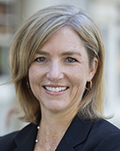 Whitney Soule has been named Vice Provost and Dean of Admissions at the University of Pennsylvania, effective July 1. The announcement was made on February 9 by Penn President Amy Gutmann and Provost Wendell Pritchett. Ms. Soule is currently Senior Vice President and Dean of Admissions and Student Aid at Bowdoin College. She has three decades of experience in admissions at highly selective institutions, including nearly 13 years at Bowdoin.
Whitney Soule has been named Vice Provost and Dean of Admissions at the University of Pennsylvania, effective July 1. The announcement was made on February 9 by Penn President Amy Gutmann and Provost Wendell Pritchett. Ms. Soule is currently Senior Vice President and Dean of Admissions and Student Aid at Bowdoin College. She has three decades of experience in admissions at highly selective institutions, including nearly 13 years at Bowdoin.
“Given the uniquely important role that the Dean of Admissions plays at Penn, we co-led this search ourselves,” President Gutmann and Provost Pritchett said in a statement. “In our numerous discussions with Whitney, it became very clear that her vision and philosophy for admissions—along with her proven track record as a leader—will perfectly position Penn to carry forward our Penn Compact vision of ever-increasing inclusion, innovation, and impact.”
During Ms. Soule’s tenure at Bowdoin, the college’s diversity and selectivity have grown. Her leadership resulted in increasing numbers of students of color, first-generation students, and students on financial aid alongside a decreasing admit rate and a growing admit-to-matriculant yield rate.
“Whitney shares our strong belief—proven true in Penn’s growing strength and continued success—that excellence and diversity in higher education are inextricably linked,” President Gutmann said.
Ms. Soule demonstrated a strong commitment to innovation and an eagerness to lead team-based efforts to rethink and improve the recruitment and selection process to better serve students and families while simultaneously advancing institutional priorities and the academic mission.
“By harnessing the latest research on decision-making and implicit bias,” Provost Pritchett said, “she oversaw development and implementation of new evaluation tools to ensure that all applicants—regardless of their backgrounds or personal circumstances—have the opportunity to demonstrate their ability to succeed on campus. She also supported efforts to redesign work processes in the admissions office to increase efficiency and better harness the efforts and talents of the admissions staff.”
Ms. Soule is a leader with a passion for influencing and steering national discussions about college admissions and the role of higher education in driving societal progress, especially as colleges and universities continue to grapple with the COVID-19 pandemic and its lasting effects. At Bowdoin, she joined with colleagues to create a unique collaboration with other highly selective liberal arts colleges that improved the ability of students, families, and counselors to learn more about the opportunities available at these types of institutions.
“The admissions team at Penn has a reputation for creative approaches to building talented and diverse classes each year,” Ms. Soule said. “For me, one of the most rewarding aspects of admissions work is the matchmaking between applicant and school and doing so with systems that are responsive and supportive both for the students and for the institution. Penn’s commitment to excellence, access, inclusion, and innovation and the dedication to these values in Penn admissions is a natural fit, and I am excited to join Penn this summer.”
Ms. Soule has chaired the executive admission committee of the New England Small College Athletic Conference, is a member of the College Board Enrollment Leaders Group, and is a board member of both the Coalition for College and the Enrollment Management Association.
She began her career in college admissions at her alma mater, Bates College, where she rose through the ranks and served as associate dean and director of transfer admissions. During an 11-year tenure at Connecticut College, she directed transfer admissions and also oversaw admissions information and systems, including serving as the admission lead for that institution’s implementation of new student information systems. She moved to Bowdoin in 2008, where she worked as Director of Admissions. In 2016, she was named Dean of Admissions and Student Aid until she became Senior Vice President in 2020. In addition to her bachelor’s degree from Bates, Ms. Soule also holds a master’s degree from Harvard University’s Graduate School of Education.
President Gutmann and Provost Pritchett praised John McLaughlin’s service as interim dean of admissions since Eric Furda’s departure on December 31. “We thank John for his exemplary work and his love of Penn and look forward to his continued contributions to our campus community in the years to come,” they said.
“Whitney Soule is extraordinarily well prepared and well positioned to lead Penn Admissions during an exciting moment in Penn’s history and during a uniquely challenging moment for our nation and our world,” President Gutmann said. “We have every confidence that she will thrive in this role and will quickly become a vital member of and integral contributor to our Penn community.”
Carl June: Dan David Prize Laureate
 International cancer cell therapy pioneer Carl June, the Richard W. Vague Professor in Immunotherapy in the department of pathology and laboratory medicine in the Perelman School of Medicine at the University of Pennsylvania and director of the Center for Cellular Immunotherapies at Penn’s Abramson Cancer Center, has been named a 2021 Dan David Prize Laureate.
International cancer cell therapy pioneer Carl June, the Richard W. Vague Professor in Immunotherapy in the department of pathology and laboratory medicine in the Perelman School of Medicine at the University of Pennsylvania and director of the Center for Cellular Immunotherapies at Penn’s Abramson Cancer Center, has been named a 2021 Dan David Prize Laureate.
The Dan David Prize is endowed by the Dan David Foundation, headquartered at Tel Aviv University, which annually awards three prizes of $1 million each to globally inspiring individuals and organizations, honoring outstanding contributions that expand knowledge of the past, enrich society in the present, and promise to improve the future of the world.
Dr. June has been recognized in the “future” category for his contributions to molecular medicine, including his groundbreaking work in developing chimeric antigen receptor (CAR) T cell therapy, which in August 2017, became the first U.S. Food and Drug Administration-approved personalized cellular therapy for cancer (Almanac September 12, 2017). Dr. June will share the prize with Steven Rosenberg, chief of the Surgery Branch at the Center for Cancer Research, and Zelig Eshhar, an immunologist at the Weizmann Institute of Science and the Tel Aviv Sourasky Medical Center.
“This global honor could not be more well deserved,” said Penn President Amy Gutmann. “Carl June is among the preeminent scientists in the world. After more than 20 years of pioneering research in his lab at Penn, Carl’s absolute determination to develop personalized cellular therapy for treating cancer is transforming the face of medicine and bringing hope to patients around the globe. The Dan David Award is a fitting recognition of his monumental achievements in medicine.”
“Dr. June is one of Penn’s most distinguished faculty members, and we are thrilled that he is being honored with the Dan David Prize for his work, which launched an immunorevolution that has reshaped the way we approach our fight against cancer,” said J. Larry Jameson, Executive Vice President of the University of Pennsylvania for the Health System and Dean of the Perelman School of Medicine. “I consider his contributions to the field of oncology to be among the most impressive in any medical or scientific field, and a crucial accomplishment in Penn’s longtime role as a pioneering institution that makes breakthrough medical advances.”
“I am honored and humbled to receive the Dan David Prize,” said Dr. June, who also serves as the director of the Parker Institute for Cancer Immunotherapy at Penn. “This is especially meaningful to me to be given the award along with Steven Rosenberg and Zelig Eshhar, who have been my long-term mentors and colleagues over the past 30 years. I also want to thank my wife Lisa and our five children who, along with my team at Penn, have been partners during this journey. Finally, I would like to thank the Dan David Foundation and Tel Aviv University for promoting science to the lay public during the global challenge facing all of us with the pandemic.”
Dr. June and his lab discovered several basic scientific principles of how the cells in the immune system work to fight cancer and infections in the 1980s and 1990s. His lab went on to conduct the first clinical evaluation of gene-modified T cells, initially in people with HIV/AIDS and then in patients with advanced leukemia using CAR T cell therapy, the approach that retrains a patient’s own immune cells to attack cancer. The cellular therapy was awarded “Breakthrough Therapy” status by the FDA for acute leukemia in children and adults in 2014 and Kymriah was approved as the first personalized cellular therapy for cancer in 2017. It is now in use for the treatment of pediatric and adult blood cancer patients worldwide.
The Dan David Prize laureates donate 10 percent of their prize money to postgraduate students in their respective fields, thereby contributing to the community and fostering a new generation of scholars. Ezekiel J. Emanuel, Vice Provost for Global Initiatives of the University of Pennsylvania, received the Dan David prize in 2018 for his contribution to the field of bioethics. Past laureates also include cellist Yo-Yo Ma, former U.S. Vice President Al Gore, and BRCA scientist Mary-Claire King.
Adapted from a Penn Today article by Steve Graff.
New Penn Dental Care Center for Persons with Disabilities

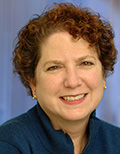 Penn Dental Medicine welcomed its first patients to the new Care Center for Persons with Disabilities in December 2020. A gift of $250,000 from Penn Dental Medicine board member Joan O’Shea helped to make the project possible. Dr. O’Shea, who founded The Spine Institute of Southern New Jersey, is a board-certified neurosurgeon who specializes in orthopedic spine surgery.
Penn Dental Medicine welcomed its first patients to the new Care Center for Persons with Disabilities in December 2020. A gift of $250,000 from Penn Dental Medicine board member Joan O’Shea helped to make the project possible. Dr. O’Shea, who founded The Spine Institute of Southern New Jersey, is a board-certified neurosurgeon who specializes in orthopedic spine surgery.
“Everyone deserves to have access to quality dental care,” said Dr. O’Shea. “I was particularly impressed by the innovative spirit that the Penn Dental team brought to this project.”
Located in the School’s Robert Schattner Center, the Personalized Care Suite is the clinical care portion of the new 3,500 square-foot Care Center that provides preventive and interceptive oral health care for patients of all ages living with a physical or intellectual disability. Featuring 12 dental operatories, the suite is outfitted to comfortably treat patients in wheelchairs and on gurneys and includes a quiet room with low lighting and sound baffling for patients with sensory sensitivities. “We are thrilled that this new care center has opened, and that construction was able to proceed on schedule through the challenges of the COVID-19 pandemic,” said Mark S. Wolff, Penn Dental Medicine’s Morton Amsterdam Dean.
Students at Penn Dental Medicine now have the added benefit of gaining training to handle the unique needs of patients with disabilities through direct experience on site.
“A key goal of the Center is to educate students as well as practicing clinicians, teachers, nurses, and caregivers on how preventive practices and teamwork can improve the quality of life for both people with disabilities and their families,” said Dean Wolff. “We will develop and report on best practices for serving this population and advance pedagogy for teaching the next generation of students to manage patients with a wide range of issues that limit their independence.”
The Center will be led by Director Miriam R. Robbins and Associate Director Alicia Risner-Bauman.
Dr. Robbins comes to Penn Dental Medicine from New York University Langone–Long Island (formerly known as NYU Winthrop Hospital) where, since 2015, she has been chair in the department of dental medicine. Since 2019, Dr. Robbins has also served as chair of the department of family dental medicine at NYU Long Island School of Medicine and as an attending surgeon in the department of plastic surgery at NYI Langone Medical Center.
Dr. Risner-Bauman brings a depth of clinical care experience in public health settings to Penn Dental Medicine, most recently serving as a General Dentist in the department of surgery of Binghamton General Hospital as well as Dental Clinic Supervisor of Broome Dental Center within the New York State (NYS) Office for People with Developmental Disabilities.
The Center will be a hub for research with the Colgate-Palmolive Innovation Laboratory, which is embedded within the facility. Through the Innovation Laboratory, Colgate experts will work side by side with Penn Dental Medicine faculty and students to assess needs and develop and refine new products that facilitate optimal dental care for patients with disabilities.
The Care Center for Persons with Disabilities is a priority of the Power of Penn Dental Medicine Campaign, which is fueling its mission to create gateways to quality oral health for all through accessible dental care.
Penn Libraries Announces Inaugural Endowed Curator of Judaica Digital Humanities
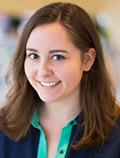 The University of Pennsylvania Libraries have announced that Emily Esten has been named the inaugural Arnold and Deanne Kaplan Collection of Early American Judaica Curator of Digital Humanities.
The University of Pennsylvania Libraries have announced that Emily Esten has been named the inaugural Arnold and Deanne Kaplan Collection of Early American Judaica Curator of Digital Humanities.
The new role—the world’s first endowed position in Judaica digital humanities—was established by a series of gifts from Arnold and Deanne Kaplan in 2019 (Almanac December 10, 2019). “The addition of an endowed Kaplan Curator expands the Penn Libraries’ ability to build on our existing collections of Early American Judaica and facilitate new scholarship at the University of Pennsylvania and beyond,” said Constantia Constantinou, H. Carton Rogers III Vice Provost and Director of the Penn Libraries.
“The Kaplans’ gifts encompass not only world-class collections but also the funds for digitization and continued study through research fellowships, ensuring long-lasting support for researchers and scholars.”
As the inaugural Kaplan Curator, Ms. Esten will spearhead projects that facilitate access to and use of Penn’s Judaica collections, promoting them and making connections between them and dispersed Judaica content around the globe. She will also be responsible for curating, building, and researching the Arnold and Deanne Kaplan Collection of Early American Judaica.
The Kaplan Curator will join the Penn Libraries’ planned Center for Research Data and Digital Scholarship, an emerging multidisciplinary hub led by Nicky Agate, Assistant University Librarian for Research Data and Digital Scholarship. The Center will serve as a locus for textual and data analysis, data curation, data visualization, geographic information systems, software creation and management, web platform design, and digital start-ups across disciplines. Ms. Esten will collaborate on experimental, sustainable projects and methods that expand the capacity of the Center, while building collaborative relationships with researchers and scholars involved with digital scholarship and Judaica across the Penn campus and beyond.
Ms. Esten holds a master of fine arts in public humanities from Brown University and bachelor’s degrees in history and digital humanities from the University of Massachusetts at Amherst. Ms. Esten served as the Judaica Digital Humanities Project Coordinator at the Penn Libraries from 2019 to 2020, and previously held roles at the Edward M. Kennedy Institute for the United States Senate and Brown University.
In addition to her new role at the Penn Libraries, Ms. Esten is also the web manager for Contingent Magazine and the director of communications for the National Emerging Museum Professionals Network.
From the Provost and Vice Provost for Faculty: A Message to Penn Faculty: Pandemic Impact Statements
February 16, 2020
In September 2020, the University extended the probationary period by one year for all faculty who are assistant professors and associate professors without tenure in the tenure, clinician-educator, and research tracks whose reviews have not already begun, who are not in their mandatory or terminal year, and who have not already received an extension related to COVID-19. Penn faculty have made rapid changes to their teaching; experienced illnesses and deaths in their families; spent more time advising, mentoring, and supporting students; and experienced barriers to conducting and disseminating research, with limits on field research, lab and facility closures, loss of research subjects, conference cancellations, journal publication slowdown, and more. Most assistant professors in non-health schools who responded to the October 2020 COVID Check-In reported that they were spending more time on teaching than before the start of the pandemic, and most assistant professors also reported that they were spending more time on caregiving and household responsibilities.
The specific short- and long-term implications of the pandemic will be different for different faculty members. For example, the negative implications for traditional measures of faculty productivity may be greater, on average, for women faculty and faculty of color, given gender differences in caregiving responsibilities, disproportionate negative health- and economic-related effects of the pandemic on Black and Brown people and communities, and greater expectations for women faculty and faculty of color to engage in mentoring and institutional service. Early data show that journal submissions during the early months of the pandemic were lower for women than for men. The full implications of the pandemic for faculty work will play out over the next several years, given the cumulative and longitudinal nature of faculty research, grant, and publication processes.
To normalize recognition of these factors, the University is adding a pandemic impact statement to its faculty review process. All faculty members may include pandemic impact statements in their annual performance and activity reports and in their dossiers for appointment, tenure, and promotion. In their pandemic impact statement, faculty should describe how the pandemic has influenced their work and career trajectory. As outlined below, faculty may describe changes made to teaching, advising, mentoring, service, and research in response to the pandemic, as well as other implications of the pandemic for faculty work and life. Faculty are not required to disclose any confidential personal health issues.
External reviewers will be informed that the University added a pandemic impact statement to its review process in spring 2021 and will be asked to consider the short- and long-term implications of the pandemic on working conditions, productivity, and career trajectory when making their evaluations if the dossier includes a pandemic impact statement. Reviewers will also be asked to focus on the quality of scholarly contributions more than the quantity. The revised External Reviewer Letter templates are posted here.
Including pandemic impact statements in the review process is an added step in the University’s response to the pandemic for our faculty. As we move forward, schools and departments are encouraged to consider how they can continue to use these statements to recognize and account for the short- and long-term implications of the pandemic for individual faculty members. We look forward to working with deans, department chairs, and faculty to support the inclusion and use of these statements and advance other related next steps.
Guidance For Pandemic Impact Statements
The pandemic impact statement describes how the pandemic has impacted a faculty member’s work and career trajectory. The statement reflects the faculty member’s individual circumstances and experiences and may include the following:
- Teaching: Changes in course load and course delivery; learning, use, and incorporation of new instructional technologies; changes in time spent.
- Advising and mentoring: Changes in advising load; support provided to students experiencing pandemic-related challenges; changes in time spent.
- Service: Engagement in efforts to make pandemic-related changes to curriculum, advising, lab access, etc.; engagement in pandemic-related initiatives for the department, university, professional association, and other organizations; changes in time spent.
- Research and scholarship: Restrictions on access to research sites, labs, facilities, studios, and other venues; restrictions on professional travel and field research; loss of access to research subjects; need to restart or pivot research; cancellation of seminars, presentations, and opportunities to collaborate; slowing of publication and grant funding processes; redirection of funding; changes in time spent.
- Other challenges: Resource constraints (e.g., internet, work space); caregiving and homeschooling responsibilities; health issues* (for self or family); visa restrictions.
(*Disclosure of personal health issues is confidential and not required.)
Resources
ADVANCE Project, University of Massachusetts-Amherst. (August 17, 2020). Documenting pandemic impacts: Best practices.
Chronicle of Higher Education (2020). “On the verge of burnout”: Covid-19’s impact on faculty well-being and career plans.
Deryugina, T., Shurchkov, O., & Stearns, J.E. (January 2021). COVID-19 disruptions disproportionately affect female academics. National Bureau of Economic Research, Working Paper.
Malisch, J., et al. (July 7, 2020). Opinion: In the wake of COVID-19, academia needs new solutions to ensure gender equity. Proceedings of the National Academy of Sciences.
Misra, J., Clark, D., & Mickey, E.L. (February 10, 2021). Keeping COVID-19 from sidelining equity. Inside Higher Ed.
Squazzoni, F., et al. (October 9, 2020). No Tickets for Women in the COVID-19 Race? A Study on Manuscript Submissions and Reviews in 2347 Elsevier Journals during the Pandemic. SSRN.
—Wendell E. Pritchett, Provost
—Laura W. Perna, Vice Provost for Faculty
Penn Dental, Penn Engineering: Center for Innovation & Precision Dentistry
.jpg)
 With the shared vision to transform the future of oral health care, Penn Dental Medicine and Penn’s School of Engineering and Applied Sciences have united to form the Center for Innovation & Precision Dentistry (CiPD). The new Center marked its official launch on January 22 with a virtual program celebrating the goals and plans of this unique partnership. Along with the deans from both schools, the event gathered partners from throughout the University of Pennsylvania and invited guests, including Rena D’Souza, the National Institute of Dental and Craniofacial Research Director (NIDCR), and Christopher H. Fox, the Chief Executive Officer of the International and American Association for Dental Research (IADR/AADR).
With the shared vision to transform the future of oral health care, Penn Dental Medicine and Penn’s School of Engineering and Applied Sciences have united to form the Center for Innovation & Precision Dentistry (CiPD). The new Center marked its official launch on January 22 with a virtual program celebrating the goals and plans of this unique partnership. Along with the deans from both schools, the event gathered partners from throughout the University of Pennsylvania and invited guests, including Rena D’Souza, the National Institute of Dental and Craniofacial Research Director (NIDCR), and Christopher H. Fox, the Chief Executive Officer of the International and American Association for Dental Research (IADR/AADR).
Conceived and brought to fruition by co-directors Michel Koo of Penn Dental Medicine and Kathleen Stebe of Penn Engineering, the CiPD is bridging the two schools through cutting-edge research and technologies to accelerate the development of new solutions and devices to address unmet needs in oral health, particularly in the areas of dental caries, periodontal disease, and head and neck cancer. The CiPD will also place a high priority on programs to train the next generation of leaders in oral health care innovation.
“We have a tremendous global health challenge. Oral diseases and craniofacial disorders affect 3.5 billion people, disproportionately affecting the poor and the medically and physically compromised,” said Dr. Koo, professor in the department of orthodontics and divisions of community oral health and pediatric dentistry, in describing the motivation to form the Center. “There is an urgent need to find better ways to diagnose, prevent, and treat these conditions, particularly in ways that are affordable and accessible for the most susceptible populations. That is our driving force for putting this Center together.”
“We have united our schools around this mission,” adds Dr. Stebe, Richer & Elizabeth Goodwin Professor in the department of chemical and biomolecular engineering. “We have formed a community of scholars to develop and harness new engineering paradigms, to generate new knowledge, and to seek new approaches that are more effective, precise, and affordable to address oral health. More importantly, we will train a new community of scholars to impact this space.”
Penn Medicine: New Healthcare Equipment Sterilization Facility
On February 1, Penn Medicine opened its new Interventional Support Center (ISC), the largest instrument processing and surgical supply preparation facility in the country. Located in Southwest Philadelphia, the ISC is the first facility of its kind in Pennsylvania. In this space, staff will both sterilize and package thousands of instruments each day in preparation for surgeries and procedures—from basic scissors and clamps to advanced robotic instruments.
At nearly 110,000 square feet, the ISC is designed to process instruments for up to 200 surgical cases each day. Penn purchased the building in 2018 and built a physical plant to support the ISC’s operations. The ISC will combine instrument processing services from the Hospital of the University of Pennsylvania (HUP) and Pennsylvania Hospital (PAH), as well as three outpatient facilities: the Perelman Center, Penn Medicine Radnor, and the Tuttleman Center. The Pavilion—also known as HUP East—will also be supported by the ISC when it opens this fall.
“The opening of the ISC sets a new standard for sterile instrument processing. It also marks a new approach from Penn Medicine. By moving our processing operations from the traditional hospital setting to an offsite, dedicated facility, we’re able to increase efficiency in a high-quality, cost-effective way—all while keeping up with increasing demand,” said Chris Pastore, ISC managing director. “Plus, the ISC alleviates space at our clinical locations, providing the breathing room hospital departments need to expand services. For example, thanks to the ISC’s capacity, Penn Medicine has been able to dedicate more space to patients at the new HUP East hospital opening later this year.”
In addition to providing hospital locations with much-needed real estate for patient care, consolidating these services off-site helps to minimize any redundant equipment across the health system. The ISC itself was designed with efficiency in mind—built with Six Sigma expertise, it is designed with a one-way forward flow approach that enables efficient instrument processing. The facility includes features that enhance sterilization efficiency, such as the use of clean steam using reverse osmosis water. The ISC will be a nearly dust-free facility thanks to increased air changes and filtration. Airlocks throughout the building also prevent cross-contamination of air between areas where dirty instruments are processed and clean ones are repackaged.
The ISC team currently consists of 140 employees coming together from on-site instrument processing facilities at HUP and PAH. In addition, 25 new employees were hired to staff the new building. The facility was created with ergonomic principles and employee well-being in mind, enabling a comfortable workspace for the ISC team members. All major equipment allows staff to make personalized adjustments, such as height adjustable sinks and assembly tables.
Wharton School Announces 12-Month Advanced Business Analytics Program
The Wharton School of the University of Pennsylvania has launched an Advanced Business Analytics Program to help mid-career and senior professionals gain hands-on experience with applications of various data analytics tools to drive business transformation.
According to a recent SAP & Forrester consulting survey, more than 90% of companies say that tools such as AI/ML are key to achieving their digital transformation goals. There is a growing demand across industries for leaders who can use these tools to leverage data to drive organizational strategy and improve business performance. The Wharton Advanced Business Analytics Program is specifically designed to address this need.
With this unique offering, participants anywhere in the world can master emerging tools and learn to apply predictive, descriptive, and prescriptive analytics for effective decision-making—gaining both hands-on experience and insights into real-world application of business analytics. The flexible nature of the program allows participants to select online electives as well as an on-campus elective relevant to their role and industry, thereby tailoring their learning for maximum career impact.
The rigorous curriculum has been designed by Wharton faculty to meet the primary goal of providing specific skill sets that meet emerging industry requirements. “In a rapidly digitizing knowledge driven world where data and information are the primary asset, the demand for skilled professionals who can analyze and optimize data into actionable insights and strategies is skyrocketing. Senior professionals need to understand the applications of tools like AI/ML, Big Data, and Data Visualization to stand out and stay ahead of the curve. We, at Wharton, are excited to offer this invaluable program to help them broaden their analytical skills and shape successful careers,” says Jagmohan Raju, Professor of Marketing, Vice Dean of Executive Education at the Wharton School.
The Wharton Advanced Business Analytics Program is led by Prasanna Tambe, Associate Professor of Operations, Information, and Decisions at the Wharton School, and Eric Bradlow, Professor of Marketing, Vice Dean of Analytics at the Wharton School. The faculty team includes Raghuram Iyengar, Miers-Busch, W’1885 Professor, Professor of Marketing, and Faculty Director – Wharton Customer Analytics, Ron Berman, Assistant Professor of Marketing at the Wharton School, and Kevin Werbach, Professor of Legal Studies & Business Ethics, an influential figure in Internet policy who served on the Obama Administration’s Presidential Transition Team in 2008. The faculty team also includes various thought leaders and researchers in the business analytics space.
“The Wharton School has been at the forefront of trail-blazing data analytics research and teaching, and with the launch of this course, professionals from across the world will have the opportunity to learn from one of the leading institutions in the world,” says Eric Bradlow, Professor of Marketing, Vice Dean of Analytics at the Wharton School.
The program comprises six core modules spanning 20 weeks, two online electives taught over six weeks each, and a five-day in-class immersion at the Wharton campus in Philadelphia for an elective in either finance, marketing, leadership, or innovation and strategy.
Center for Benefit-Cost Studies of Education: New Home at GSE
Teachers College, Columbia University (TC) and the University of Pennsylvania’s Graduate School of Education (Penn GSE) announced that the renowned Center for Benefit-Cost Studies of Education (CBCSE) has moved from TC to Penn GSE. The Center will be led by assistant professor Brooks Bowden, with founder Henry Levin continuing as Founding Director and Senior Fellow.
“We are so excited to make Penn GSE the new home for the Center for Benefit-Cost Studies of Education,” said Penn GSE Dean Pam Grossman. “This Center builds on Penn GSE’s work to address critical challenges in education related to educational equity—and to be at the forefront of this research. Dr. Bowden has been an outstanding addition to our school, and I am confident she will continue the Center’s legacy of impact.”
“Dr. Bowden is an extraordinarily talented colleague, with a 12-year record of leadership and productivity at CBCSE,” said Henry Levin, Founding Director of CBCSE. “She has made important contributions to the Center’s success. CBCSE considers itself very fortunate to have such a strong new leader for the directorship.”
The mission of CBCSE is to advance educational equity by conducting economic evaluations of interventions and policies that address educational barriers related to poverty and oppression that prevent students from experiencing the full value of education. One aspect of this work is to assess and demonstrate the value of investing in education and marginalized children and youth. The Center’s website features an array of publications and methods for benefitting educational decisions. The research the Center conducts provides information about effective practices and associated “ingredients” to improve the efficient allocation of scarce resources to better serve students and society. Finally, a major focus of CBCSE is to strengthen the quality of research and economic evaluation.
CBCSE launched in 2007 as an outgrowth of the work begun in the 1970s by Center founder Dr. Levin, who is a key contributor in the field of the economics of education.
With CBCSE now based at Penn, Dr. Bowden plans to build on CBCSE’s groundbreaking work and legacy of improving educational investments and outcomes in the U.S. and abroad. Specifically, Dr. Bowden’s work focuses on leveraging additional resources from families, volunteers, and the community in order to strengthen the supports provided to students. Methodologically, her work focuses on strategies to improve educational research by integrating cost-effectiveness into evaluations.
Upcoming research projects for the Center include cost-effectiveness analyses of interventions addressing early-childhood learning needs among millions of refugee children. This project will be conducted in partnership with NYU’s Center for Global TIES for Children and the Sesame Workshop, with funding from the LEGO Foundation and the MacArthur Foundation.
Penn Joins Joint Technology Licensing Program
On January 15, fifteen of the country’s leading research universities, including Penn, launched University Technology Licensing Program LLC (UTLP). The other schools included Brown, Caltech, Columbia, Cornell, Harvard, the University of Illinois, Michigan, Northwestern, Princeton, SUNY Binghamton, UC Berkeley, UCLA, the University of Southern California, and Yale.
UTLP brings a subset of intellectual property assets from within these universities’ patent portfolios related to the physical sciences together for efficient licensing, enabling interested tech companies to obtain licenses to inventions from multiple universities for their existing and future product offerings.
In pooling the patents, UTLP will streamline the dissemination of these universities’ technologies, paving the way for continued innovation in the marketplace. Previous university developments in the physical sciences have already generated important patented inventions that have improved lives and enabled new products. By providing a one-stop shop for companies to access technologies of interest, UTLP is designed to accelerate the pace of innovation in the industrial arena.
Multiple technology areas are included in the University Technology Licensing Program, including connectivity (e.g., power management, networking protocols, signal processing and codecs, location tracking, cameras, and image processing); autonomous vehicles; and data applications (e.g., storage, data management, network protocols).
Each participating university will determine which patents from among its intellectual property portfolio to contribute to the UTLP pool. In the future, UTLP may develop additional patent pools related to semiconductor fabrication, applied electronics, batteries, photovoltaics, robotics, and other areas.
COVID-19 Vaccines for Penn mRNA Biology Pioneers
The scientific team whose 2005 messenger RNA biology discovery at the University of Pennsylvania helped pave the way for Pfizer/BioNTech and Moderna’s COVID-19 vaccines received their first dose of the Pfizer/BioNTech vaccine together on December 18 at Penn, more than 20 years after they began their basic science collaboration.
Drew Weissman, a professor of medicine in Penn’s Perelman School of Medicine, and Katalin Karikó, an adjunct professor at Penn and a senior vice president at BioNTech, together discovered that exchanging one of the four building blocks of messenger ribonucleic acid (mRNA) molecules could greatly increase its therapeutic potential. They shared their perspectives as longtime researchers in the field who are comfortable taking the vaccines themselves, and called on the public to trust the decades of scientific research that has led to these important vaccines now being deployed in the global fight against the virus, encouraging others to get vaccinated when it becomes available to them.
“We understand there are concerns the vaccine was developed quickly, but Kati and I developed our enabling technology fifteen years ago, and we and other scientists have been working on how to use it to develop mRNA ever since,” Dr. Weissman said. “This isn’t brand new—scientists have been studying vaccines using this mRNA platform for at least six or seven years. Based on all of the data available to date, these mRNA vaccines have shown a good safety profile. Clinicians always consider risk–benefit scenarios whenever we recommend a new treatment or a new vaccine to patients and to the public, and with this vaccine there’s no comparison—the benefit is huge and there’s really little to no risk.”
Vaccines relying on mRNA are backed by years of research and safety data, and have several attributes, which are distinct from other historic approaches to vaccine technology. First, they do not contain live virus, so there is no risk of COVID-19 infection from taking the vaccination. Data also show the new vaccines are highly effective, with Moderna and Pfizer/BioNTech clinical trials demonstrating efficacy of about 95 percent in all racial groups. In addition, mRNA vaccines are quicker and easier to produce than traditional vaccines. Other mRNA vaccines are now being studied in clinical trials for HIV, herpes, the Zika virus, rabies, and influenza.
A key element of Drs. Weissman and Karikó’s mRNA discovery is it increases mRNA stability while at the same time decreasing inflammation, further paving the way for these modified mRNAs to be used in a wide array of potential vaccines and treatments. Unmodified mRNA molecules are normally unable to slip past the body’s immune system, but Drs. Weissman and Karikó’s breakthrough research made key changes to the molecular structure and manufacturing of mRNA that allow the resulting modified mRNA to avoid immediate immune detection, remain active longer, and enter into target cells to efficiently instruct them to create antigens or other proteins that fight or treat disease.
“I’m a clinician and a researcher, and ever since I started doing research, my dream was always that I would help develop something that actually benefits people, that goes into people and makes them better, cures their disease, does something to help them,” Dr. Weissman said. “We’re so proud that these vaccines are poised to do that.”
“I feel humbled, and happy,” said Dr. Karikó. “I am more a basic scientist, but I always wanted to do something to help patients. I wasn’t thinking about a vaccine or infectious disease; I was always thinking about developing mRNA for therapeutics. I’m hopeful, now that there is so much interest and excitement for this research, that it will be possible to develop and test this mRNA vaccine technology for prevention and treatment of other diseases, too.”
Beyond COVID-19, the mRNA technologies developed at Penn may lead to new strategies for using mRNA, including development of vaccines targeting other infectious diseases as well as new therapeutics and products for protein replacement, immunotherapy, and personalized cancer vaccines.
Note: The Pfizer/BioNTech and Moderna COVID-19 mRNA vaccines both use licensed University of Pennsylvania technology. As a result of these licensing relationships, Penn, Dr. Weissman and Dr. Karikó have received and may continue to receive significant financial benefits in the future based on the sale of these products. BioNTech provides funding for Dr. Weissman’s research into the development of additional infectious disease vaccines.
Wolf Humanities Center Fellowships: Due March 22
Penn Faculty Fellowships
The Wolf Humanities Center offers fellowships each year to standing faculty at Penn in the humanities and allied departments. The fellowships are for research that relates to the Center’s theme for the year in which the award is granted.
Tenure-track assistant professors receive a $5,000 research fund stipend (paid in two installments).
Tenured professors may apply for either a $5,000 research fund stipend or one to two course reliefs. The Wolf Humanities Center provides course replacement money for up to two courses, to be paid to the fellow’s department at Penn’s LPS instructor rate and to be used solely for course replacement. Advance written approval of any course relief request is required from the applicant’s department chair. Scholars who have already had one semester of course relief not given as compensation for service between fall 2018 and spring 2021 may only apply for a $5,000 research fund stipend or a single course relief.
Fellows are required to attend the Wolf Humanities Center’s weekly Mellon seminars (Tuesdays, noon–1:50 p.m.)* and present their research at one of the sessions during the year. In addition to Penn faculty, seminar members include Mellon Postdoctoral Fellows, regional faculty, the Center’s director and topic director, and others.
*Note: Interested applicants are advised to check well ahead with their department/s to avoid conflicts in scheduling classes and other obligations.
Call for Applications, 2021–2022
Research Topic: Migration
Application deadline: March 22, 2021
Applications are now being accepted for research on the topic of Migration, the Center’s topic for 2021–22. Please apply via the Interfolio application portal.
Applicants are required to submit an up-to-date CV and a single PDF including the following:
- Project Title
- Project Abstract (125 words maximum)
- Project Proposal (approx. 1,000 words)
Senior Faculty Applicants: if you are applying for course relief, please ask your department chair to email Sara Varney at saravarney@sas.upenn.edu by March 22, 2021 with their written approval of your application and course relief request.
Penn Graduate Student Research Fellowships
The Wolf Humanities Center offers two one-year research fellowships to Penn dissertation-level graduate students in the humanities. Students should be conducting dissertation research related to the Center’s theme for the year in which the award is granted. Fellows are awarded $2,500 stipends and are required to attend the Wolf Humanities Center’s Mellon Research Seminar, held Tuesdays from noon–1:50 p.m.* during the academic year, and present their work at one of the sessions. Seminar members also include postdoctoral fellows, faculty from Penn and regional universities, and the Center’s director and topic director. Graduate Fellows also assist in the planning of a one-day symposium on the annual topic.
*Note: Interested applicants are advised to check well ahead with their department/s to avoid conflicts in scheduling classes and other obligations.
Call for Applications, 2021–2022
Research Topic: Migration
Application deadline: March 22, 2021
Applications are now being accepted for research on the topic of Migration, the Center’s topic for 2021–2022. Please apply via the Interfolio application portal.
Applicants are required to submit an up-to-date CV and a single PDF including the following:
- Project Title
- Project Abstract (125 words maximum)
- Project Proposal (approx. 1,000 words)
- One confidential letter of recommendation from the applicant’s dissertation advisor or graduate chair. Letters must be uploaded to Interfolio no later than the March 22 deadline.
Penn Undergraduate Research Fellowships
The Wolf Humanities Center offers fellowships each year to Penn undergraduate students from any school who are interested in conducting extracurricular research in the humanities on some aspect of the Center’s annual theme. Students must be full time, on campus for the full academic year of the award, and in good academic standing.
Fellows become members of the Wolf Undergraduate Humanities Forum, a community of undergrads who meet to discuss and present their research, pursue various cultural activities of common interest, and occasionally meet in special receptions with the Wolf Humanities Center’s distinguished speakers. In the past, these speakers have included Zadie Smith, Michelle Alexander, Junot Diaz, Slavoj Žižek, and Colson Whitehead. The year’s program culminates in a spring conference at which students give formal presentations on the results of their research.
Fellows are required to attend and participate in regularly scheduled meetings. In-person meetings will be held biweekly on Fridays from 3–5 p.m.; if virtual meetings are required, students must be available for 60-minute meetings that will be conducted weekly on Fridays at 5 p.m. Fellows are also required to participate in the Undergraduate Humanities Forum Research Conference, scheduled next academic year for Friday, March 25, 2022. Additional opportunities for fellows will be announced during the year.
Three positions are available on the Wolf Undergraduate Humanities Forum Executive Board. The UHF Chair and Executive Board Fellows work closely with UHF Director David Spafford and the Wolf staff, and serve important leadership roles, planning and organizing activities throughout the year as well as the spring research conference. The annual call for applications opens each November and closes in mid-March.
Call for Applications, 2021–2022
Research Topic: Migration
Application deadline: March 22, 2021
The Wolf Humanities Center is offering 12 fellowships for the 2021–2022 academic year for Penn undergraduates from any school who are interested in conducting research on some aspect of Migration, the Forum’s theme that year. Applicants must be full time and in good academic standing. Awards are available in three categories:
- Research Fellowship and Undergraduate Chair (one $2,000 award)
- Research Fellowship and Member, Executive Board (two $1,750 awards)
- Research Fellowships (up to nine $1,500 awards)
Please submit the following via our Interfolio application portal.
1. Research Plan. Please explain how your project relates to Migration, the Wolf Humanities Center’s topic for 2021–2022, and outline your theoretical and methodological approach. Your research plan should be uploaded as a single PDF including the following:
- Project Title
- Project Abstract (125 words max)
- Project Proposal (300-500 words)
2. Personal Statement. Please explain how your education, work, and personal experience qualify you to undertake this research. The Wolf Humanities Center is an inclusive intellectual space. If you have had any experiences of diversity that have shaped your approach to your research and educational path, we would be glad to hear about it. (300-500 words)
3. Unofficial Transcript.
4. Confidential Letter of Recommendation. A letter from a Penn faculty member who is familiar with your proposed research is encouraged. Letters must be submitted by the March 22 deadline.
5. Applicants applying for a position on the Wolf Undergraduate Humanities Forum Executive Board should also prepare 200-300 words explaining the following:
- Previous experience you have had in planning events or organizing groups
- Why you think an Undergraduate Humanities Forum is important
- Ideas you have for organizing and motivating your Wolf Undergraduate Humanities Forum colleagues and for inspiring other Penn undergraduates to become involved in future years
Call for Applications for Health-Tech Design & Development Grants
The Health-Tech Design and Development program empowers faculty and staff from the University of Pennsylvania and Penn Medicine to develop and commercialize medical devices and health technologies to advance health and health care. The program is co-sponsored by Penn Health-Tech and the Acceleration Lab at the Penn Medicine Center for Health Care Innovation.
Participating teams receive funding, hands-on advising to support development and achieve proof of concept, and access to industry experts and complementary programs to assist with engineering and design, manufacturing, regulatory guidance, quality systems, and marketing.
Penn Health-Tech and the Penn Medicine Center for Health Care Innovation invite faculty and staff from the University of Pennsylvania, Penn Medicine, and Children’s Hospital of Philadelphia (CHOP) to submit proposals for pilot funding through the Health-Tech Design and Development program. The goal of this funding is to support the development of medical devices and health technology projects that address important unmet medical needs and/or the translation of the technology (e.g., commercialization, licensing agreement, and start-up formation). Pilot funded projects can include early-stage technologies that do not yet qualify for support by federal agencies through later-stage technologies that are not yet mature enough for private investment. Proposals that cross departments and schools and promote sharing expertise are strongly encouraged.
How to Apply
- Register for a SurveyMonkey account using your University of Pennsylvania, Penn Medicine, or Children’s Hospital of Philadelphia email address.
- Verify your email address to make sure you receive application updates and notifications.
- Fill out the application in its entirety before the application deadline: Tuesday, April 6 at 5 p.m. EST.
Summer Funding Program Expands to Support Middle-Income Students
Student Registration & Financial Services (SRFS), in partnership with Career Services, will expand their Summer Funding Program this year with an additional $500,000 to support 125-150 middle-income students pursuing summer research and internship opportunities.
Priority eligibility will be for students whose families have an annual income of between $65,000 and $140,000 with typical assets. The first of three application deadlines occurs on February 28. The application requires a detailed budget for an award of up to $4,000.
This program builds on the highly aided summer internship funding program managed by SRFS for those with family incomes up to $65,500 with typical assets. The partnership with Career Services fills a gap by funding internships for students whose family incomes are above these limits. “With the highly aided summer funding program able to provide guaranteed support to undergraduates with the highest levels of financial need, SRFS is thrilled to partner with Career Services to expand the initiative to include students from different income levels,” said Matt Sessa, executive director of SRFS.
“Our funding process really is focused on helping students getting started in their careers,” said Barbara Hewitt, executive director of Career Services. Her team will be looking for student applications that explain how the summer internship will help them achieve a goal or get their foot in the door.
Funding can help with expenses such as food, lodging, and travel for students whose targeted opportunities are not in their hometowns. “We really want to help students both explore what they want to do with their lives after they leave Penn and take steps towards achieving those goals,” Ms. Hewitt said.
In previous years funding has supported students with internships in government, the arts, the nonprofit sector, or start-ups, which are often unpaid, but Ms. Hewitt encourages students interested in any field to apply.
“While many students report that their internships solidified their career goals, sometimes people will come back and say, ‘I didn’t really like this, so I’ve shifted my career goals,’” Ms. Hewitt said. “That’s okay, too. If they decide it’s not for them, that’s helpful to know early on in your career.”
Last year, Career Services awarded funding to Stephanie Acquaye, a senior from Woodbury, Minnesota, for a summer internship at a doula organization in Minneapolis that provides education, wellness services, and other resources to expectant parents. As a nursing major, Ms. Acquaye was drawn to doula work, supporting expectant families “through a process that can be as challenging as it is beautiful,” she said.
Ms. Acquaye said the opportunity gave her “a front seat to watch, learn from, and support the efforts” of a community-based organization during the large-scale health crisis created by the pandemic. “Through this experience, I gained real-world knowledge of some ways in which health policy directly impacts healthcare access, grew in my knowledge and experience as a women’s health advocate, and strengthened my passion to work to improve family and community health in my future career as a nurse,” she said.
Sophomore Mark Wasuwanich said he is passionate about reducing adverse impacts on the environment, hoping to help transform Penn into a zero waste community. A mathematics major from Orlando, Florida, Mr. Wasuwanich was able to take a summer internship with OLIO, a mobile food waste application company, learning leadership, communication, and sales skills, thanks to Career Services funding.
“I was initially reluctant to take an unpaid internship,” said Mr. Wasuwanich, explaining that the pandemic has been “especially tough” on his family’s business. “It was because of this funding that I could explore the sustainability field.”
Mr. Sessa said that the team often hears from students about how important a summer experience can be to augmenting their coursework, and the impact it can have towards their overall education and progression.
“We really hope financing doesn’t get in the way of somebody turning down a great opportunity, because it was underpaid or unpaid,” said Mr. Sessa. “The hope for this program is that it will allow a greater number of Penn students to take advantage of these rich experiences to help them prepare for their future professions.”
 Whitney Soule has been named Vice Provost and Dean of Admissions at the University of Pennsylvania, effective July 1. The announcement was made on February 9 by Penn President Amy Gutmann and Provost Wendell Pritchett. Ms. Soule is currently Senior Vice President and Dean of Admissions and Student Aid at Bowdoin College. She has three decades of experience in admissions at highly selective institutions, including nearly 13 years at Bowdoin.
Whitney Soule has been named Vice Provost and Dean of Admissions at the University of Pennsylvania, effective July 1. The announcement was made on February 9 by Penn President Amy Gutmann and Provost Wendell Pritchett. Ms. Soule is currently Senior Vice President and Dean of Admissions and Student Aid at Bowdoin College. She has three decades of experience in admissions at highly selective institutions, including nearly 13 years at Bowdoin.
 International cancer cell therapy pioneer Carl June, the Richard W. Vague Professor in Immunotherapy in the department of pathology and laboratory medicine in the Perelman School of Medicine at the University of Pennsylvania and director of the Center for Cellular Immunotherapies at Penn’s Abramson Cancer Center, has been named a 2021 Dan David Prize Laureate.
International cancer cell therapy pioneer Carl June, the Richard W. Vague Professor in Immunotherapy in the department of pathology and laboratory medicine in the Perelman School of Medicine at the University of Pennsylvania and director of the Center for Cellular Immunotherapies at Penn’s Abramson Cancer Center, has been named a 2021 Dan David Prize Laureate.
 Penn Dental Medicine welcomed its first patients to the new Care Center for Persons with Disabilities in December 2020. A gift of $250,000 from Penn Dental Medicine board member Joan O’Shea helped to make the project possible. Dr. O’Shea, who founded The Spine Institute of Southern New Jersey, is a board-certified neurosurgeon who specializes in orthopedic spine surgery.
Penn Dental Medicine welcomed its first patients to the new Care Center for Persons with Disabilities in December 2020. A gift of $250,000 from Penn Dental Medicine board member Joan O’Shea helped to make the project possible. Dr. O’Shea, who founded The Spine Institute of Southern New Jersey, is a board-certified neurosurgeon who specializes in orthopedic spine surgery. The University of Pennsylvania Libraries have announced that Emily Esten has been named the inaugural Arnold and Deanne Kaplan Collection of Early American Judaica Curator of Digital Humanities.
The University of Pennsylvania Libraries have announced that Emily Esten has been named the inaugural Arnold and Deanne Kaplan Collection of Early American Judaica Curator of Digital Humanities..jpg)
 With the shared vision to transform the future of oral health care, Penn Dental Medicine and Penn’s School of Engineering and Applied Sciences have united to form the
With the shared vision to transform the future of oral health care, Penn Dental Medicine and Penn’s School of Engineering and Applied Sciences have united to form the  Jacob Miller, a former employee in Penn’s comptroller’s office, died on February 1. He was 74.
Jacob Miller, a former employee in Penn’s comptroller’s office, died on February 1. He was 74. Kaitlyn O’Hara, an anesthesiology nurse at Penn Vet’s Ryan Veterinary Hospital, died on February 3 while trying to rescue a stray cat from a busy highway in Cherry Hill, NJ. She was 27.
Kaitlyn O’Hara, an anesthesiology nurse at Penn Vet’s Ryan Veterinary Hospital, died on February 3 while trying to rescue a stray cat from a busy highway in Cherry Hill, NJ. She was 27.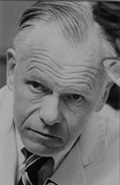 Robert “Robin” Lickely Post, a former instructor and visiting scholar in physiology in Penn’s School of Medicine, passed away on January 26 following a long illness. He was 100.
Robert “Robin” Lickely Post, a former instructor and visiting scholar in physiology in Penn’s School of Medicine, passed away on January 26 following a long illness. He was 100.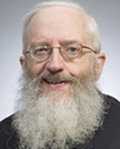 David Shakow, professor emeritus of law in Penn’s Carey Law School, died on January 16 from causes related to COVID-19. He was 75.
David Shakow, professor emeritus of law in Penn’s Carey Law School, died on January 16 from causes related to COVID-19. He was 75. The 2021 recipient of The Sheth Foundation Medal for Exceptional Contribution to Marketing Scholarship and Practice is George S. Day.
The 2021 recipient of The Sheth Foundation Medal for Exceptional Contribution to Marketing Scholarship and Practice is George S. Day.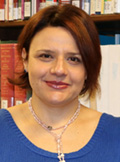 A team led by Iliana Kohler, assistant research professor, associate director of the Population Studies Center, and a Senior Fellow at the Leonard Davis Institute for Health Economics, has won a National Academy of Medicine (NAM) Healthy Longevity Global Grand Challenge Catalyst Award supporting aging and health-related research in Malawi, Africa. Titled “Leveraging Social Networks and Linkage to Care to Foster Healthy Aging in a Low-Income Context,” Dr. Kohler’s project is in keeping with the international scope of the NAM program, which gave Catalyst Awards to research teams in the U.S., the UK, the European Union, Israel, Singapore, Japan, Taiwan, and Tanzania.
A team led by Iliana Kohler, assistant research professor, associate director of the Population Studies Center, and a Senior Fellow at the Leonard Davis Institute for Health Economics, has won a National Academy of Medicine (NAM) Healthy Longevity Global Grand Challenge Catalyst Award supporting aging and health-related research in Malawi, Africa. Titled “Leveraging Social Networks and Linkage to Care to Foster Healthy Aging in a Low-Income Context,” Dr. Kohler’s project is in keeping with the international scope of the NAM program, which gave Catalyst Awards to research teams in the U.S., the UK, the European Union, Israel, Singapore, Japan, Taiwan, and Tanzania. Marisa C. Kozlowski, professor of chemistry in the School of Arts and Sciences, has been appointed editor-in-chief of Organic Letters, one of the premier journals of the American Chemical Society.
Marisa C. Kozlowski, professor of chemistry in the School of Arts and Sciences, has been appointed editor-in-chief of Organic Letters, one of the premier journals of the American Chemical Society.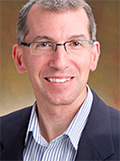 Philip V. Scribano, professor of clinical pediatrics at the Perelman School of Medicine, has won a 2021 Greater Philadelphia Social Innovations Award from the Social Innovations Journal. The seventh annual awards event was held on January 21.
Philip V. Scribano, professor of clinical pediatrics at the Perelman School of Medicine, has won a 2021 Greater Philadelphia Social Innovations Award from the Social Innovations Journal. The seventh annual awards event was held on January 21. Liang Wu, assistant professor of physics and astronomy, was announced as one of 150 researchers awarded grants totaling $50 million from the Department of Defense under the Defense University Research Instrumentation Program. The grant will allow the acquisition of a scanning magneto-optical microscope for topological materials for Dr. Wu’s lab, and further cutting-edge research studying light-matter interaction in topological materials. Dr. Wu’s research has wide implications, including significant advances in computing speed and technology.
Liang Wu, assistant professor of physics and astronomy, was announced as one of 150 researchers awarded grants totaling $50 million from the Department of Defense under the Defense University Research Instrumentation Program. The grant will allow the acquisition of a scanning magneto-optical microscope for topological materials for Dr. Wu’s lab, and further cutting-edge research studying light-matter interaction in topological materials. Dr. Wu’s research has wide implications, including significant advances in computing speed and technology.